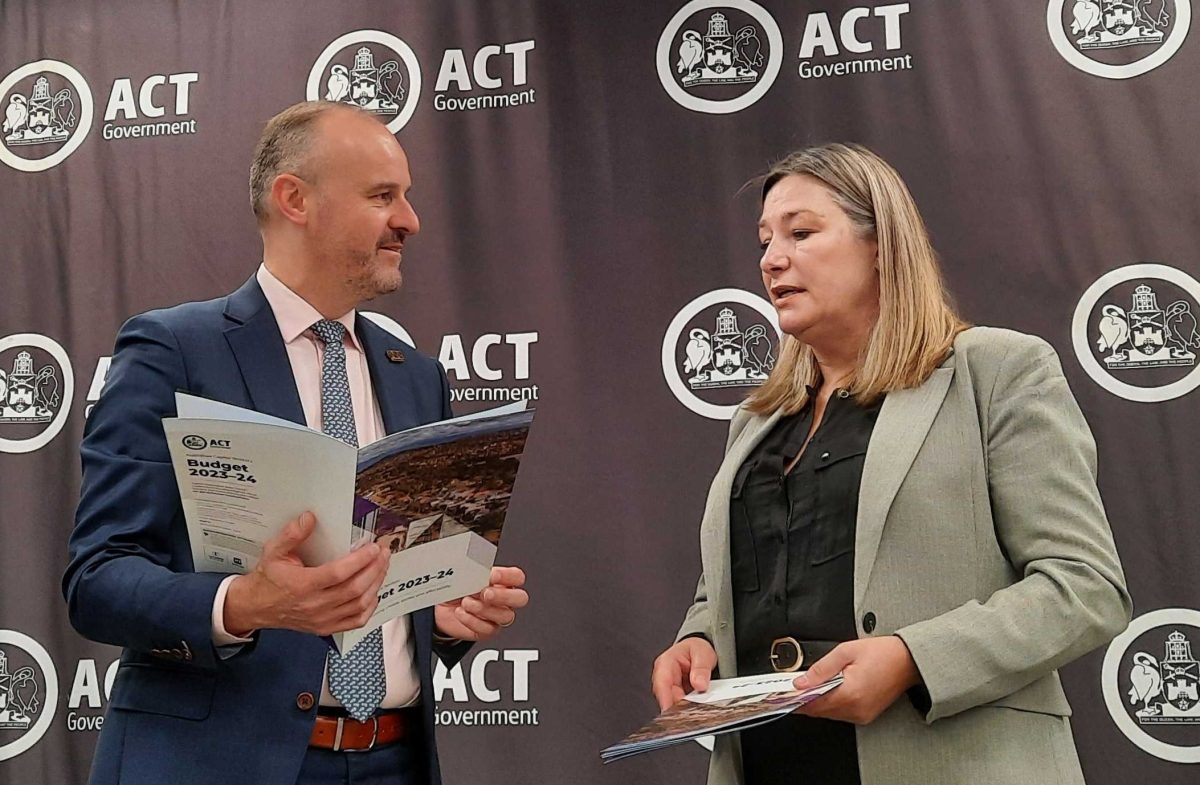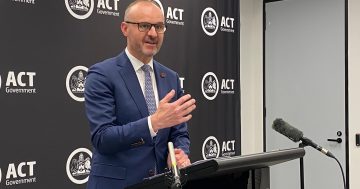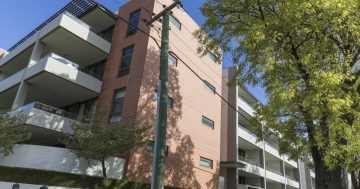
S&P Global expects the ACT to record an operating budget deficit in 2024 due to a sharp rise in government spending. Photo: Ian Bushnell.
A global credit rating agency has downgraded the ACT’s rating for the first time in over 20 years, anticipating a slower fiscal recovery from the COVID-19 pandemic and higher spending.
S&P Global also expects the ACT’s operating budget to return to deficit in fiscal year 2024 due to the rollout of cost of living support and the rising cost of delivering services.
The agency lowered its long-term issuer credit rating on the ACT from the highest rating, AAA, to AA+. This is the first time its rating has changed since February 2003.
S&P Global forecasts that the ACT’s ratio of debt to operating revenue will reach 154 per cent by 2026, far higher than its international peers with a AAA rating.
“After-capital account deficits will also be larger and more prolonged than our previous forecasts, reflecting weaker operating balances and ACT’s greater capital expenditure (capex) than we expected,” S&P Global said in a statement.
“The downgrade reflects the territory’s slower fiscal recovery from the pandemic than we expected. ACT’s after-capital account balance is larger, and its ratio of tax-supported debt to operating revenues is much higher than those for all AAA-rated peers globally.”
Other jurisdictions have also had their ratings downgraded in recent years. Both NSW and Victoria lost their AAA ratings in 2020.
While S&P Global expects the ACT’s budgetary outcomes to steadily improve over the next three years, this will be at a slower pace than previously forecast.
It expects the ACT’s cash operating balance to revert to deficit in fiscal year 2024 as rising expenses and major infrastructure spending delay recovery.
“The territory’s 2023-2024 Budget focuses on the wellbeing of residents by improving the public healthcare system, investing in social and affordable housing, and improving educational outcomes,” it said.
The ACT budget allocated an additional $540 million to healthcare, $400 million to education and $345 million to housing over 2024-2027.
“We expect the sharp rise in spending to lead to a 2.4 per cent operating deficit in fiscal 2024, compared with our prior forecasts of a 2.8 per cent surplus,” S&P Global said.
However, it expects operating expenses to moderate from 2025 onwards as spending on cost-of-living support and one-off cash items decreases.
However, S&P Global said the ACT’s economic fundamentals remain robust despite slowing growth.
“ACT’s economic fundamentals remain very strong, underpinned by high gross state product (GSP) per capita, household consumption and public demand. The territory has a very high-income economy, given it is the home of the Commonwealth government and the Australian public service,” it said.
S&P Global also cited strong population growth as a supporting factor, particularly with the return of international students and a pickup in interstate migration.
The ACT also benefits from a low unemployment rate, averaging around 3 per cent.
“The territory historically has had Australia’s most resilient labour market, with unemployment tracking 1-2 percentage points lower than the national average in the past half-decade,” S&P Global said.




















